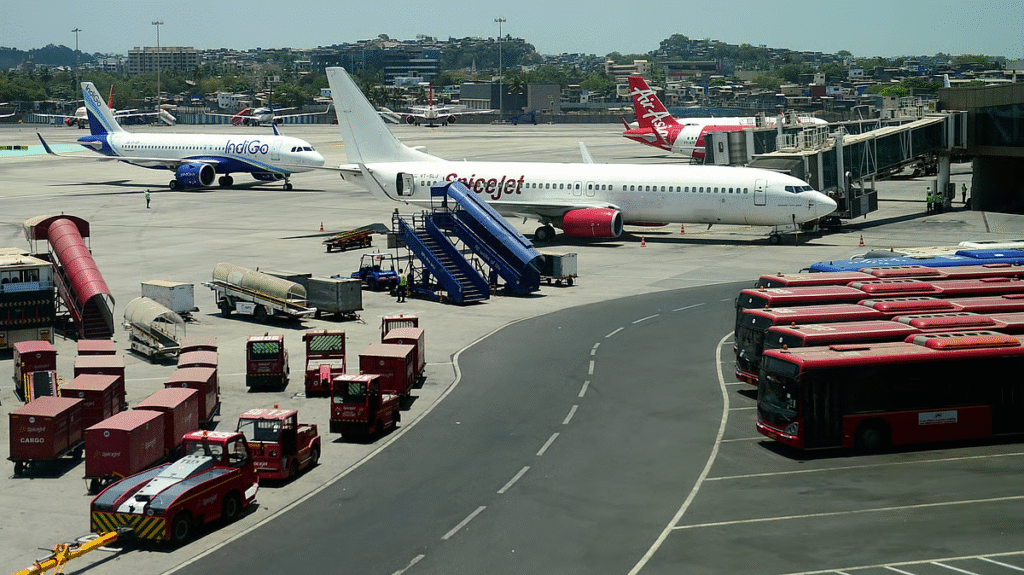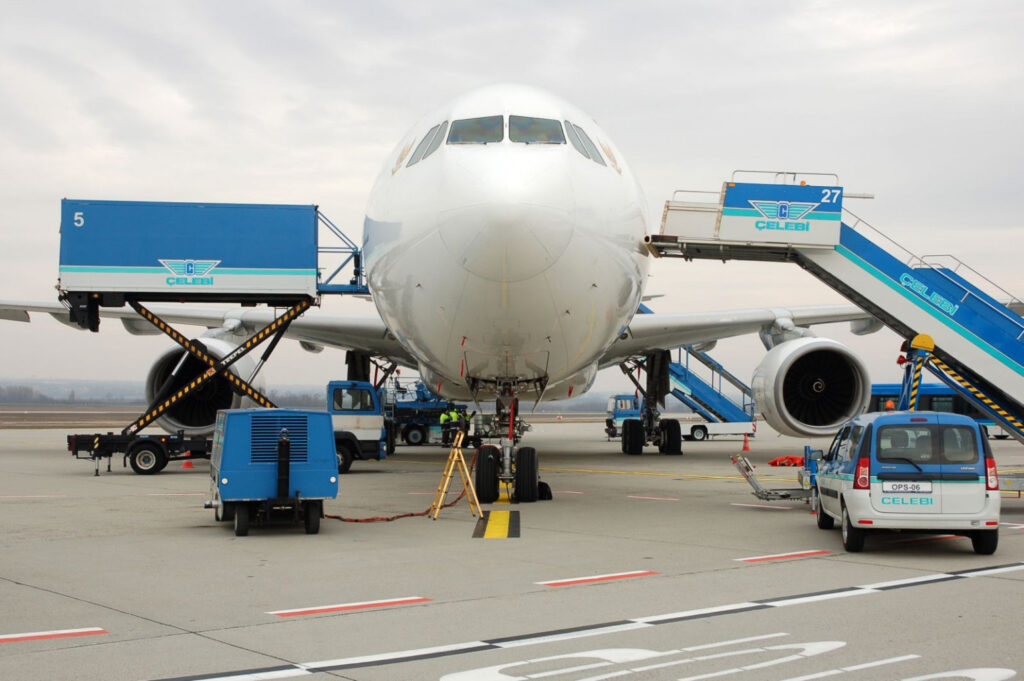
In an unprecedented step underscoring India’s stringent approach to aviation security, the Bureau of Civil Aviation Security (BCAS) has revoked the security clearance of Celebi Airport Services India Pvt Ltd. The company, a subsidiary of Turkey’s Celebi Aviation Holding, operates as a major ground handling agency in India’s aviation sector. The decision, taken in the interest of national security, has sent ripples across the aviation and business communities. This blog delves into the various dimensions of this decision, its implications, and the larger geopolitical context.
Understanding Celebi Aviation: A Global Player
Founded in 1958, Celebi Aviation is a prominent global ground handling and cargo company. With operations spanning Europe, the Middle East, Asia, and North Africa, the company has carved a niche for itself in providing high-quality ground handling services. Its Indian subsidiary, Celebi Airport Services India Pvt Ltd, began operations in 2009, catering to major airports such as Delhi’s Indira Gandhi International Airport (IGIA), Bengaluru’s Kempegowda International Airport, and others. Celebi’s offerings include passenger handling, baggage services, cargo operations, and aircraft maintenance support, making it an integral part of the aviation ecosystem.
The role of ground handling companies cannot be overstated. They act as the backbone of airport operations, ensuring efficiency, safety, and a seamless experience for passengers and airlines. Celebi’s entry into India was seen as a game-changer, introducing advanced technologies and practices to a rapidly growing aviation market. Over the years, the company has won accolades for its operational efficiency and commitment to quality, making this recent development all the more significant.
BCAS: The Gatekeeper of Indian Aviation Security
The Bureau of Civil Aviation Security (BCAS), established in 1978, is the regulatory authority tasked with ensuring civil aviation security in India. Its role became more critical post the 1985 Kanishka bombing, leading to its restructuring in 1987. BCAS sets stringent security standards for airlines, airports, and related service providers. From monitoring pre-boarding checks to ensuring the safety of airport premises, BCAS’s mandate is pivotal in maintaining the safety and integrity of India’s skies.
BCAS’s proactive stance in recent years reflects the evolving nature of aviation threats. With the global increase in cyberattacks, insider threats, and geopolitical tensions, the bureau has adopted a multi-faceted approach to security. For instance, its mandate for 100% secondary ladder point checks—where passengers undergo additional screening before boarding—is a testament to its vigilance. Similarly, the emphasis on advanced surveillance technologies and collaboration with international security agencies underscores its commitment to global best practices.
The Decision: A National Security Imperative
On May 14, 2025, BCAS issued an official order revoking Celebi’s security clearance. The order, signed by BCAS Joint Director (Operations) Sunil Yadav, stated:
“The security clearance in respect of Celebi Airport Services India Pvt Ltd, under the category Ground Handling Agency, is hereby revoked with immediate effect in the interest of national security.”
This move is believed to be influenced by concerns regarding Turkey’s geopolitical stance and its perceived support for Pakistan on various international platforms. Given the sensitive nature of ground handling services—which directly interact with aircraft, cargo, and passengers—ensuring complete trust in service providers is non-negotiable.
Experts suggest that the decision aligns with India’s broader strategy to secure critical infrastructure. Aviation, being a highly interconnected and vulnerable sector, requires uncompromising vigilance. The revocation also reflects India’s growing assertiveness in safeguarding its interests, even if it involves challenging influential foreign entities.
Operational Fallout: Impact on Indian Airports
Celebi’s withdrawal from Indian airports presents immediate operational challenges. The company’s services span key airports, including Delhi, Mumbai, Hyderabad, and Goa. These airports will now need to rely on alternative service providers, such as Bird Group and AISATS, to bridge the gap.
Ground handling is a critical component of airport operations, involving baggage handling, passenger boarding, and aircraft maintenance. A disruption in these services can lead to delays, logistical challenges, and increased costs for airlines and passengers. To mitigate these impacts, airport operators are expected to issue tenders for new ground handling agencies in the coming weeks. Meanwhile, temporary arrangements will ensure minimal disruption.
Industry insiders predict that the void left by Celebi will create opportunities for local companies to expand their footprint. However, this transition will require careful planning and execution to avoid operational hiccups.
Geopolitical Underpinnings: India-Turkey Relations
The revocation of Celebi’s clearance cannot be viewed in isolation. It reflects the broader geopolitical tensions between India and Turkey. In recent years, Turkey’s vocal support for Pakistan on issues like Kashmir and its growing defense ties with Islamabad have strained relations with India. Ankara’s opposition to India’s inclusion in global forums like the Nuclear Suppliers Group (NSG) has further deepened mistrust.
In this context, the decision to revoke Celebi’s clearance serves as a message that India prioritizes its national security over economic considerations. It also highlights the government’s willingness to take decisive actions against entities linked to nations perceived as adversarial.
Analysts note that this development could further strain India-Turkey relations, impacting trade and diplomatic engagements. However, it also underscores India’s resolve to counter challenges posed by geopolitics in sectors as critical as aviation.
Economic and Reputational Impact on Celebi Aviation
For Celebi Aviation, the revocation marks a significant setback. India is one of the fastest-growing aviation markets globally, and losing access to this market could have financial implications for the company. Celebi’s reputation as a trusted ground handling service provider may also take a hit, potentially affecting its operations in other countries.
Moreover, the decision underscores the risks associated with geopolitical alignments. Companies operating in sensitive sectors like aviation must navigate the complexities of international relations carefully to avoid such outcomes.
Industry experts suggest that Celebi may explore legal avenues to challenge the decision. However, the likelihood of reversing the revocation remains uncertain, given the national security implications cited by BCAS.
Implications for Indian Aviation
While Celebi’s exit poses short-term challenges, it also opens up opportunities for local and other international ground handling providers to expand their presence in India. The government’s emphasis on self-reliance could encourage Indian companies to invest in ground handling services, reducing dependence on foreign players.
At the same time, the decision reinforces the importance of adhering to stringent security protocols. Ground handling agencies will need to ensure compliance with BCAS guidelines to maintain their operational clearances.
Stakeholder Reactions and Public Discourse
The aviation industry has reacted cautiously to the news. While some stakeholders have expressed concerns about the operational impact, others have lauded the government’s commitment to national security. Celebi Aviation has yet to issue an official statement, but industry experts believe the company may seek legal recourse to challenge the decision.
On social media, public opinion has been divided. While many have supported the government’s action, citing national security, others have raised questions about the potential disruption to airport operations and the broader implications for India-Turkey relations.
Global Perspectives on Aviation Security
Internationally, the revocation of Celebi’s clearance aligns with a growing trend of prioritizing national security in aviation policies. Countries such as the United States, the UK, and Australia have also tightened regulations on foreign entities operating in sensitive sectors. These measures reflect a collective understanding that aviation is not just an economic enabler but also a critical element of national security infrastructure.
India’s decision is likely to prompt other nations to reassess their security frameworks. The focus will likely shift towards stricter vetting processes for companies operating in sectors where vulnerabilities can have far-reaching consequences.
Conclusion: A Defining Moment for Indian Aviation Security
The revocation of Celebi’s security clearance marks a defining moment in India’s aviation sector. It underscores the government’s unwavering commitment to safeguarding national security, even at the cost of economic and operational challenges. As India continues to grow as a global aviation hub, maintaining robust security measures will be paramount.
In the coming months, the aviation industry will need to adapt to this change, ensuring seamless operations while aligning with the government’s security priorities. For Celebi Aviation, the decision serves as a stark reminder of the complexities of operating in geopolitically sensitive regions.

